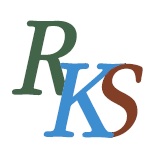Contextualizing the Discourse on Pro-Japanese Collaborators in the Process of Democratization after Democracy
Abstract
The purpose of this article lies in examining how The Hangyoreh took advantage of the discourse on pro-Japanese collaborators (ch’inilp’a damnon) for its progressive political stance in the post-democratization period from 1988 to 2002. As one of the representative progressive media of the day, The Hangyoreh took the initiative in re-introducing the once-forbidden topic of collaborators to society and claimed to have resettled the issue in present after Korea’s democratization in 1987. Furthermore, the newspaper utilized the discourse of ch’inilp’a, which reminds a negative memory of the failure of judging antinational traitors right after Korea’s liberation in 1945 and also “dire historical outcomes” that the rule of those unpurged collaborators brought into the development of post-1945 Korean history. By closely analyzing its editorials and reports, this article attempts to illuminate how the ch’inilp’a discourse in The Hangyoreh played a leading role in protecting, fostering, and furthering democratic progress, which Korean progressives thought was under the constant challenge during the post-democratization period.
- keywords
- ch’inilp’a, ch’inilp’a discourse, pro-Japanese collaboration, resettling the past wrongs
참고문헌
Chin, Chunggwŏn. 2001. “Anti-Chosun kyorimundap” [The Catechism of Anti-Chosun Ilbo]. In Wae Chosun Ilbo inga [Why? Is It Chosun Newspaper?], edited by Chosun Ilbo pandae sinmin yŏndae, 75-102. Seoul: Inmul kwa sasang.
Cho, Hŭiyŏn. 1998. Han’guk u˘i minjujuu˘i, cho˘ngch’i pyo˘ndong [The State, Democracy, and Political Changes in Korea]. Seoul: Tangdae.
Ch’oe, Yŏngho. 2002. Hyŏndae Han-Il kwangyesa [Contemporary Korea-Japan Relation]. Seoul: Kukhak charyowŏn.
Ch’oe, Yŏngho. 2006. Han-Il kwangye ŭi hŭrŭm, 2004-2005 [The Stream of Korea-Japan Relation from 2004 to 2005]. Seoul: Nonhyŏng.
Choi, Jang Jip. 2002. Minjuhwa ihu ŭi minjujuŭi [Democracy after the Democratization]. Seoul: Huminit’asŭ.
Chŏn, Sangsuk. 2011. “Ch’inmi wa panmi ŭi inyŏm kaltŭng: ‘Panmi’ rŭl t’onghaesŏ pon inyŏm kaltŭng ŭi yŏksajŏk kiwŏn kwa kujo” [Ideological Conflict between Pro-U.S. and Anti-U.S.: Historical Origin and Structure of Ideological Conflict Seen in “Anti-U.S.”]. Tongyang chŏngch’i sasangsa 10 (1): 147-66.
Kang, Chunman. 2001. “Sugu sinmun ttaemune” [Because of Reactionary Newspapers]. The Hangyoreh, March 26.
Kim, Minch’ŏl, and Seyŏl Cho. 2006. “‘Ch’inil’ munje ŭi yŏn’gu kyŏnghyang kwa kwaje” [The Trend and Task of Research on Pro-Japanese Collaboration]. Sach’ong 63: 167- 225.
Kim, Pongu. 1992. “Pantch’ok yŏksa kŏmŏchwin ch’inil kunsang: Tasi Chu Kisŏng noin ŭi chugŭmapesŏ” [A Group of Pro-Japanese Collaborators Grasping Half of Korean History: Again in Front of the Death of Old Man Chu Kisŏng]. The Hangyoreh, February 28.
Kim, Samung. 1995. “Panminjok pŏmjoe tanjoe anŭl ttan husejit’an” [There will be Regret in the Next Generation if We don’t Punish Anti-national Crimes]. The Hangyoreh, June 3.
Kim, Samung, Hŏnjong Yi, and Unhyŏn Chŏng. 1990. Ch’inilp’a [Collaborators]. 3 vols. Seoul: Hangminsa.
Kim, Tongch’un. 2005. “‘Minjuhwa’ ŭi hwansang ŭl nŏmŏsŏ” [Beyond the Fantasy of “Democratization”]. Hwanghae muhwa 49: 20-38.
Kim, Tongmin. 2001. “Anti-Chosun simin undong ŭi yŏksajŏk ŭimi” [The Historical Meaning of Anti-Chosun Civil Movement]. In Wae Chosun Ilbo inga [Why? Is It Chosun Newspaper?], edited by Chosun Ilbo pandae simin yŏndae, 20-38. Seoul: Inmul kwa sasang.
Ko, Sŭngu. 2004. Hangyoreh ŭi ch’anggan kwa ŏllon minjuhwa [The Publication of The Hangryoreh and the Democratization of Mass-media]. P’aju, Gyeonggi-do: Nanam.
Sin, Ilsŏp. 1993. “‘Yŏksa ŭi simpan’ ŭn ‘yŏksa ŭi chim ida’” [“Historical Judgment” is Historical Burden]. The Hangyoreh, June 13.
Son, Sŏkch’un. 2001. “Pudŭrŏun ŭmmo” [Soft Conspiracy]. The Hangryoreh, February 19.
Sŏng, Hanpyo. 1989. “‘P’yŏngminyŏn’ ŭn tomabaem ŭi kkori inga” [Is “P’yongminyon” the Tail of a Lizard?]. The Hangyoreh, July 8.
The Hangyoreh Editorial. 1993. “Ch’inil haengwi chosa wa pallangun susa” [The Investigations on Pro-Japanese Activities and Rebellion Army]. The Hangyoreh, July 23.
Sŏng, Hanpyo. 1993. “Ch’inil seryŏk ŭl natnatch’i ch’ŏngsan hara” [Cleansing off Pro-Japanese Collaborators Completely]. The Hangyoreh, August 18.
Sŏng, Hanpyo. 1993. “Ch’inil tongnip yugongja wa yŏksa paro ssŭgi [Pro-Japanese Men of Merit and Correcting History]. The Hangyoreh, July 11.
Sŏng, Hanpyo. 1993. “Kwagŏ ch’ŏngsan mani minjuhwa ŭi chirŭmkil” [Only Resettling the Past is the Shortcut to Democracy]. The Hangyoreh, August 11.
Sŏng, Hanpyo. 1993. “‘Yŏksa paro chapkki’ wa ‘yŏksa e makkigi’” [“Setting History Right” and “Leaving it to History”]. The Hangyoreh, June 17.
Sŏng, Hanpyo. 1993. “‘Yŏksa ŭi simpan’ ŭn ‘yŏksa ŭi chim ida’” [“Historical Judgment” is Historical Burden]. The Hangyoreh, June 13.
Yi, Hŏnjong. 1990. “Ch’inilp’a munje e taehan yŏn’gu hyŏnhwang kwa kwaje” [The Present Stage and Task for the Study on Collaborationist Issue]. In Ch’inilp’a: kŭ ingan kwa nolli [Pro-Japanese Collaborators: The Humanity and its Logic], edited by Hŏngjong Yi, Samung Kim, and Unhyŏn Chŏng, 112-44. Seoul: Hangminsa.
Yi, Yŏnghŭi. 1994. “Ilbonin mangŏn kyut’an chŏn e kungmin ŭi ch’ongbansŏng i p’ilyohada” [(We, Korean People) Need to Have Thorough Self-reflection before Denouncing Japanese’s Bold Remarks]. Wŏlgan mal 96: 28-35.
Yun, Yŏngsŏ. 1996. Yŏksa paroseugi: Kim Young Sam chŏnggwŏn kaehyŏk ch’ongsŏ, no. 00 [Straightening up History: A Series of Booklets Explaining the Kim Young Sam Government’s Reforms]. Seoul: Mirae midiŏ.
- 437다운로드 수
- 436조회수
- 0KCI 피인용수
- 0WOS 피인용수


